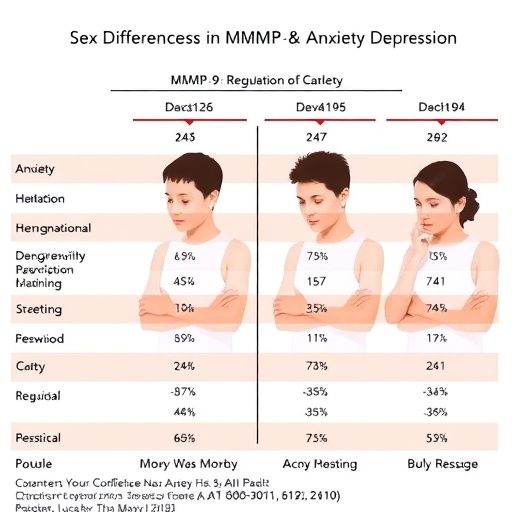
In a groundbreaking endeavor to enhance healthcare equity, researchers O. Mgbako, M. Gonzalez, and C. Olagun-Samuel have embarked on a novel project that integrates academic rigor with community engagement through a structured approach dubbed the Journal Club. This initiative, titled “A Just Appraisal: Co-creating a New Health Equity Framework with Learners through Journal Club to Evaluate the Literature,” aims to cultivate a fresh perspective on evaluating healthcare literature while empowering learners to influence systemic change. The team seeks to co-create a health equity framework, promoting collaboration among diverse stakeholders within healthcare settings.
This innovative research captures the essence of leveraging academic settings to drive tangible changes in health equity. By involving learners from various educational backgrounds and experiences, the project emphasizes the importance of diverse perspectives in understanding complex healthcare disparities. The Journal Club, a structured discussion forum where participants critically engage with literature, serves as the ideal platform for this co-creation process. It allows individuals to dissect existing frameworks and propose improvements based on lived experiences and collective insights.
Health equity remains a critical topic as disparities persist across racial, socioeconomic, and geographic lines. The imperative to address these inequities has never been more pronounced than in the aftermath of global events like the COVID-19 pandemic, which has had disproportionate effects on marginalized communities. The Journal Club’s focus on co-creating a framework reflects an acknowledgment that traditional methods of evaluation often fall short of addressing the nuanced needs of diverse populations. There’s an urgent need for culturally competent healthcare solutions that arise from grassroots involvement and informed dialogue.
The project takes an interdisciplinary approach, enrolling learners in the medical, nursing, social work, and public health fields. This diversity allows for a multifaceted exploration of health equity, where each participant brings unique insights from their respective disciplines. The collaborative environment fosters critical thinking, enhances problem-solving skills, and cultivates a sense of ownership among participants. By actively engaging learners in the evaluation process, the initiative not only educates but also empowers future healthcare leaders to advocate for change.
The framework developed through the Journal Club is designed to be adaptable and responsive to local community needs. One of the significant strengths of this approach lies in its iterative nature, allowing participants to refine their insights continually. The experience becomes a two-way learning street; educators impart knowledge while learners contribute their perspectives, creating a dynamic dialogue that can lead to innovative solutions. This adaptability is vital as communities face an ever-evolving healthcare landscape, characterized by shifting demographics, emerging health threats, and changing policy environments.
Moreover, the researchers emphasize the need for equity in access to healthcare resources. One of the underpinnings of their framework is the belief that all individuals deserve equal opportunities to achieve optimal health, irrespective of their background. This principle guides the selection of literature for discussion in the Journal Club, prioritizing works that address various dimensions of health inequity, including those related to systemic barriers, access to care, and social determinants of health. Engaging with this literature equips learners with a comprehensive understanding of the issues at hand, allowing them to formulate thoughtful, evidence-based strategies for intervention.
As discussions unfold within the Journal Club, participants analyze case studies, review relevant literature, and brainstorm innovative approaches to healthcare delivery. This active engagement not only sharpens their analytical skills but also reinforces the importance of collaboration across disciplines. Each member plays a vital role in the co-creation process, encouraging dialogue that leads to concrete, actionable strategies. The collective expertise and distinct experiences within the group pave the way for holistic solutions that truly prioritize community needs.
Importantly, the project recognizes the challenges inherent in effecting systemic change. While the Journal Club serves as a fertile ground for ideas, the path from concept to implementation can be riddled with obstacles. The researchers intend to document these challenges and successes thoroughly, creating a repository of insights that can inform future initiatives. By sharing their findings with the broader academic and healthcare communities, they aim to inspire similar efforts elsewhere, promoting a culture of equity-driven practice nationwide.
Furthermore, the team acknowledges the role of mentorship in this journey. Experienced professionals guide learners, sharing their expertise while simultaneously learning from the innovative approaches that emerging practitioners bring to the table. Mentorship fosters a culture of growth, bridging the gap between theory and practice. It instills a sense of responsibility among seasoned professionals to cultivate the next generation of health equity advocates and leaders.
In conclusion, the innovative project led by Mgbako, Gonzalez, and Olagun-Samuel signifies a pivotal step toward reimagining how health equity is approached within educational frameworks. The Journal Club serves not only as a platform for critical discourse but also as a catalyst for collective action. The co-creation of a health equity framework that is both practical and responsive to community needs represents a monumental leap toward addressing longstanding disparities in healthcare. As the framework evolves through ongoing discussion and refinement, the potential for impactful change in health equity beckons.
By fostering an environment that values collaborative engagement, diverse perspectives, and real-world applications, the project promises to influence the next generation of healthcare leaders thoroughly. Ultimately, through the co-creation process, this initiative endeavors to transform theoretical knowledge into practical strategies that advance health equity, thereby improving health outcomes for all communities.
Subject of Research: Co-creating a New Health Equity Framework
Article Title: A Just Appraisal: Co-creating a New Health Equity Framework with Learners through Journal Club to Evaluate the Literature
Article References:
Mgbako, O., Gonzalez, .M., Olagun-Samuel, C. et al. A Just Appraisal: Co-creating a New Health Equity Framework with Learners through Journal Club to Evaluate the Literature.
J GEN INTERN MED (2025). https://doi.org/10.1007/s11606-025-09774-2
Image Credits: AI Generated
DOI:
Keywords: Health Equity, Journal Club, Co-creation, Healthcare Disparities, Community Engagement, Interdisciplinary Collaboration.
Tags: academic rigor in public healthaddressing healthcare disparitiesco-creating health equity solutionscollaborative journal clubcommunity engagement in healthcarediverse perspectives in healthcareempowering healthcare learnersevaluating healthcare literaturehealth equity frameworkinnovative approaches to health equitystructured discussions in healthcare educationsystemic change in health equity




